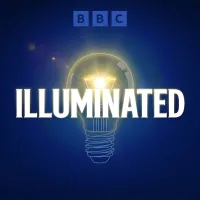View Transcript
Episode Description
200 years ago, the modern railway was born. On 27th September 1825, the first ticketed passenger train, powered by steam travelled on a public line in County Durham.
Katrina Porteous, a poet with generational connections to the area follows the track of that inaugural journey, accompanied by a rich aural soundscape by Joe Fowler. She also journeys through time, accelerating from the coal mines which fuelled the railway to the modern day, racing to a future of international travel and modern technologies which offer new, more sustainable rail alternatives.
From the Northeast's coal mines to the sea, we capture the wonder of that inaugural journey, meeting people passionate about the Stockton and Darlington Line and the rail networks that followed: chance encounters, voices from history, retired railway men, and those who have preserved this legacy (Senior Museum Curator at Locomotion the National Railway Museum in Shildon, Anthony Coulls, and Caroline Hardie, Friends of the S&DR.)
Katrina discovers how this particular railway contributed to the standardisation of time and its incredibly rapid growth in Britain and around the world, while cold digital sounds and aural disintegration reflect some of the challenges rail travel has faced in the modern era. Through landscape and time, Katrina explores what a world shrunk by technology and speed means now and what the future of the railways might be.
This is a magic mosaic, capturing the place railway travel holds in so many hearts – not least the production team where family histories entwine and childhood passions now experiment with sound, or who have simply enjoyed train travel in places as far flung as India, the States or Japan.
Produced by Anna Scott-Brown. An Overtone production for BBC Radio 4.
